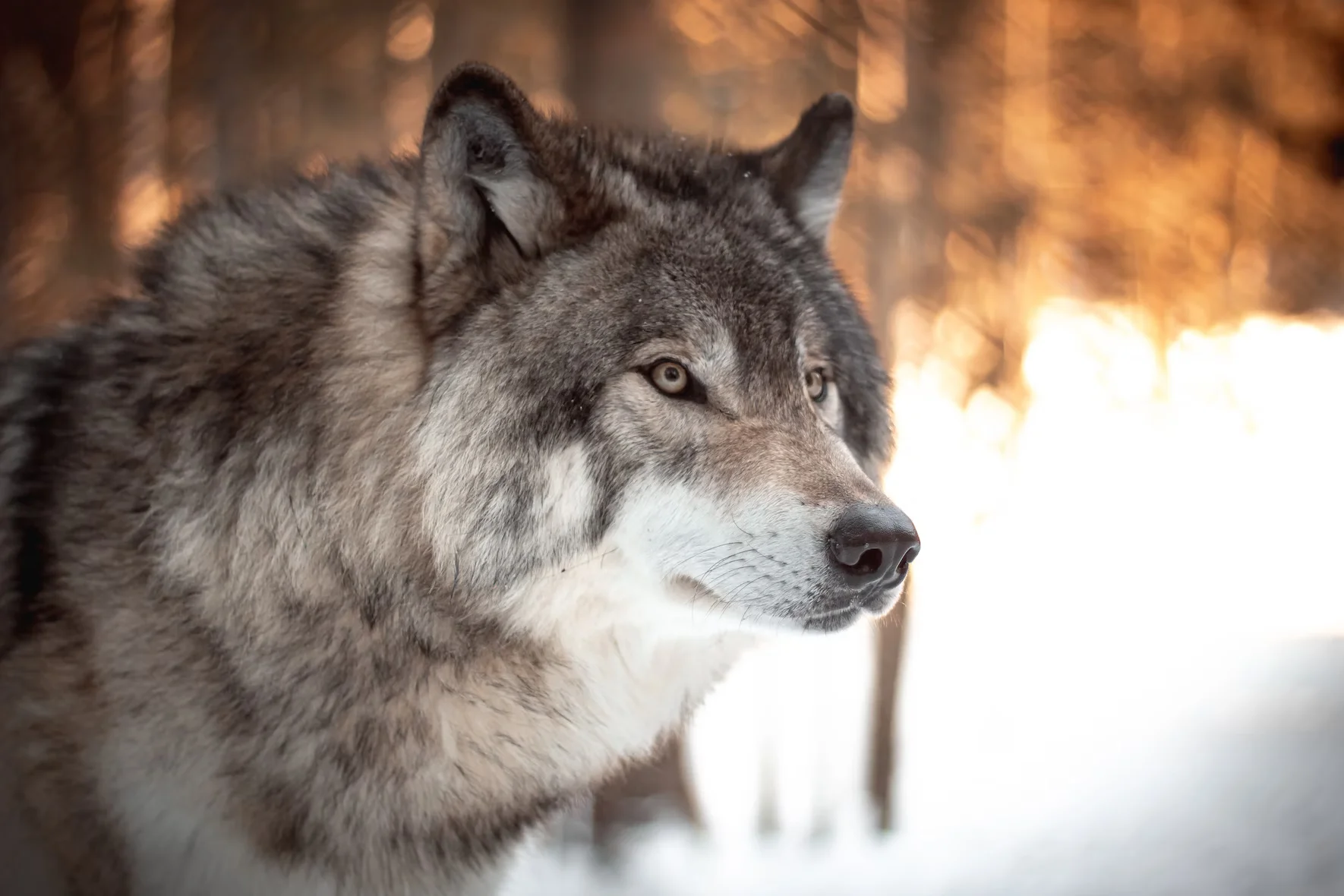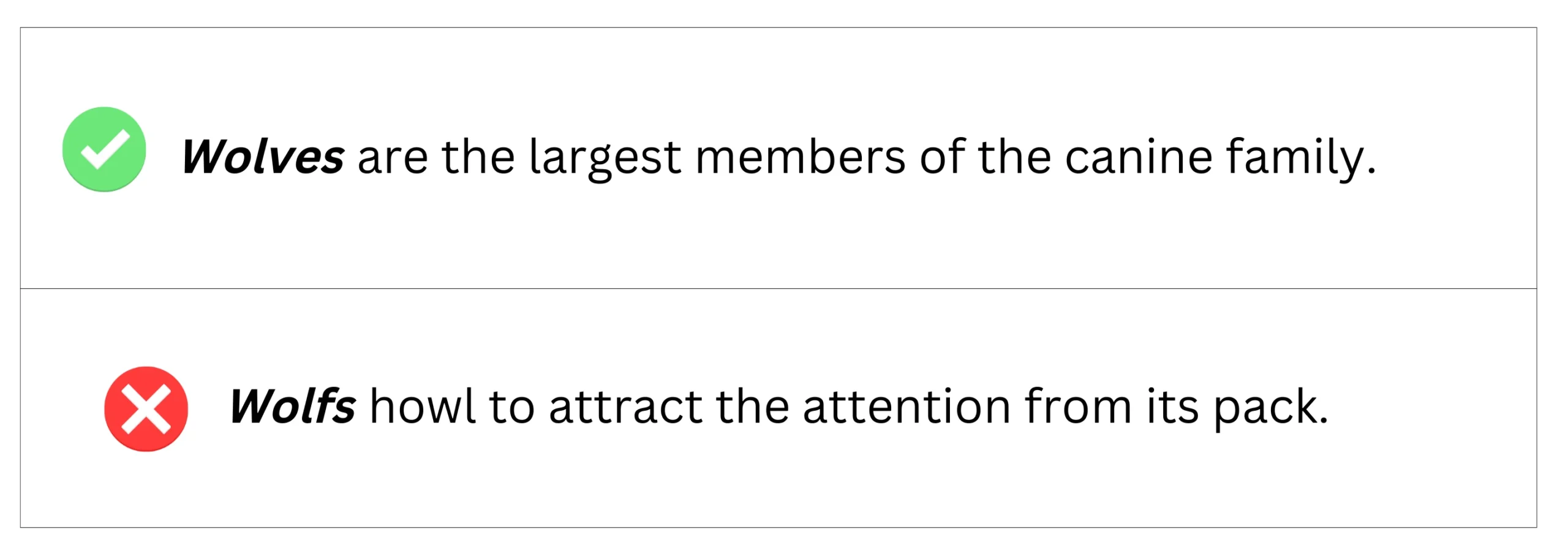
Contents
Toggle
What’s the plural of “wolf”?

The plural of wolf is wolves. English is weird; wolf derives from the German, which may have some part in explaining why it’s irregular (regular plural nouns in English end in -s/-es.) Let’s learn more about this in the next sections.
What’s the singular of wolf?
It’s wolf, as in, ‘he was a lone wolf‘.
What’s a wolf? Are wolves the same as foxes or coyotes?
A wolf is defined in the Brittanica Encyclopedia as:
Any of two species of wild doglike carnivores. The gray, or timber, wolf (Canis lupus) is the better known. It is the largest non-domestic member of the dog family (Canidae) and inhabits vast areas of the Northern Hemisphere.
Irregular plural nouns that end in -f/fe and -ves
Wolves is an irregular plural noun that does not end in the regular -s/-es that regular plural noun forms take. Wolf is often confused with wolfs, or sometimes wolfes; likely for the exact reason that the plural of wolf would be wolfs/wolfes if English attempted to be consistent as a language. This is not the case, and though wolves is irregular, as you’ll see, as a plural noun, it’s not that irregular. See these other similar-sounding irregular nouns in English that end in -f/fe, and modify to –ves as a plural:
| singular | plural |
| knife | knives |
| life | lives |
| wife | wives |
| shelf | shelves |
| self | selves |
| half | halves |
| wolf | wolves |
Collective names for wolves
As a group, wolves are a pack: “A pack of wolves emerged from the woods.” Apparently, female wolves are ‘she-wolves’ or ‘bitch’ (how that ever became the term for a female dog is a topic for another #gflex blog post.) Male wolves are called ‘dogs’.
Examples of “wolf” used in context
He watched the wolf disappear into the tall grass.
It was a wolf howling at the full moon.
Somewhere in the cold outdoors, a wolf howled.
He turned out to be a wolf in sheep’s clothing.
There was a marvellous animal, a marsupial wolf.
Examples of “wolves” used in context
One must howl with the wolves.
Some of the wolves had interbred with domestic dogs.
They flew over woods and lakes, over sea and land; below them roared the wild wind; the wolves howled and the snow crackled.
They heard wolves howling in the distance.
They were as hungry as the wolves.
Phrases with the word “wolf”
| Phrase | Meaning |
|---|---|
| a wolf in sheep’s clothing | said of something that appears harmless but is in fact dangerous |
| thrown to the wolves | when you’re left to deal with a difficult situation on your own unexpectedly |
| keep the wolf from the door | prevent people coming to you for repayment |
| a lone wolf | said of someone that enjoys solitude |
| the boy who cried wolf | “to claim that something is happening when it really isn’t, which results in the rejection of subsequent valid claims”, The Free Dictionary |
| it’s a foolish sheep that makes the wolf his confessor | only confide in those you know are trustworthy |
| between dog and wolf | between dusk and daylight |
| to wolf (something) down | “wolf” appears as a verb meaning to finish one’s food very quickly, as a wolf would |
Origin of the word “wolf”
From Etymonline, wolf comes from:
“Old English wulf “wolf, wolfish person, devil,” from Proto-Germanic wulfaz* (source also of Old Saxon wulf, Old Norse ulfr, Old Frisian, Dutch, Old High German, German wolf, Gothic wulfs), from PIE root wlkwo–“wolf”.
Read about other topics in grammar
Sources










